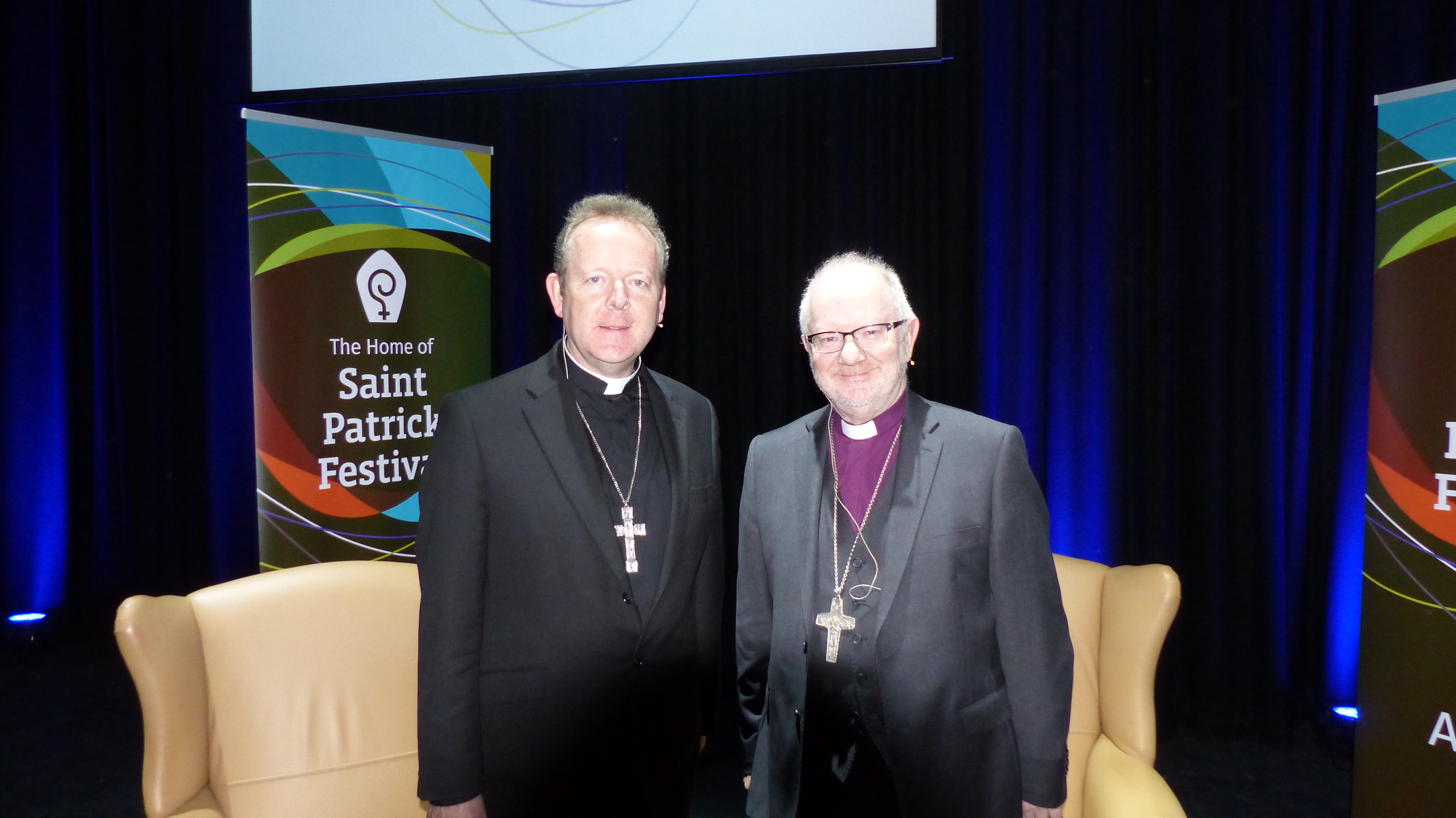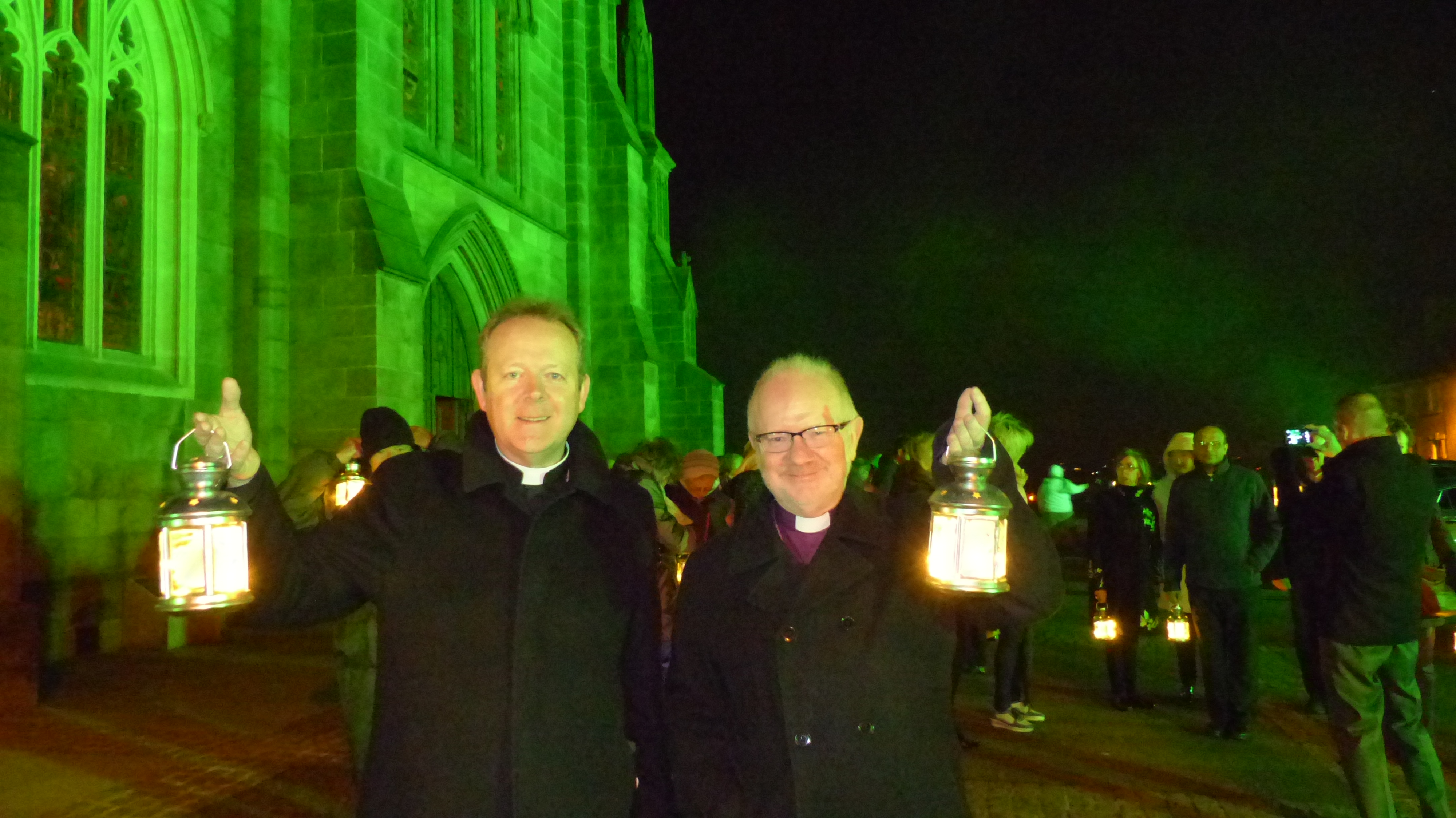
On the eve of St Patrick’s Day, Archbishop Richard Clarke and Archbishop Eamon Martin returned to the Market Place Theatre in Armagh for the second year to give short lectures and answer questions from a large audience at a special event forming part of the Saint Patrick Festival run by Armagh City, Banbridge and Craigavon Council and Newry, Mourne and Down Council. The event was hosted by BBC journalist Tara Mills, and this year the two Primates were also joined by Skype link-up with New York by Cardinal Timothy Dolan, Archbishop of New York.
All three archbishops praised Patrick as a timeless patron saint and one who speaks to us today many centuries after he brought the Gospel of Christ to Ireland and wrote his famous Confessio. As the coming together of the two Irish Primates at the event and on various other occasions evidenced, Archbishop Clarke said that Patrick ‘belongs to the whole community, bringing all the traditions together’. However, Archbishop Clarke went on to ask what does the real Patrick have to say to us today? Strikingly, he said, Patrick was what we would now say was a victim of human trafficking: an exile, torn from his home comfort to another place and exploited as a slave. Today, Archbishop Clarke continued, human trafficking remains ‘one of the huge evils of our society – it is all around us and still here, often with people living in dreadful conditions’. He said, ‘Patrick calls us to look at what is going on around us, at people being treated as commodities’.
St Patrick, he argued, escaped and yet returned to become a foreigner in Ireland again, convicted by the need to share the Gospel with courage and conviction. Archbishop Clarke said that today we must have ‘a firm grip on our Christian faith of whatever tradition’ while also being ‘alert to the gifts being brought to us by exiles from other cultures here today’ and asked if we were ready to hear and learn from them?
Archbishop Martin expanded on the theme by arguing that exile was ‘a paradigm for Patrick’s spiritual life’ – ‘a dark reality upon which he drew’, while Cardinal Dolan praised St Patrick as ‘a first-class missionary and a first-class evangelist … which is so needed in our day as his’. The focus of questions and answers, turned to the need to have a deep concern for human trafficking and to relate to people’s desperation; a welcome for immigrants; and defence for people’s rights in uncertain and insecure times when people feel threats to their identities. The archbishops concluded that St Patrick’s life and teaching should be an inspiration to the marginalised in Ireland – a land both famed for its welcome but also known for its history of emigration. Archbishop Clarke concluded that while there is fear about change of certainty here and across the world, we ‘must see our primary identity as being children of God’. Avoiding pandering to populism, as Christians in this place, we must ‘model behaviours of welcome and relationship’.
Later on Thursday evening, a Vigil walk from St Patrick’s Church of Ireland Cathedral was led by Archbishop Clarke to St Patrick’s Roman Catholic Cathedral where walkers were met by Archbishop Martin, and both cathedrals were illuminated in green to mark the eve of the patron saint’s day.
On St Patrick’s Day itself, the two Primates jointly led the carnival procession in Armagh City.
